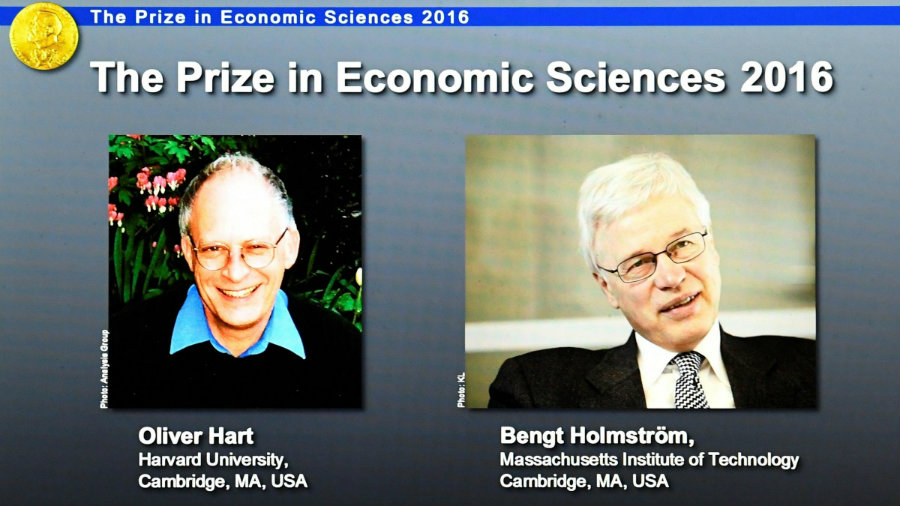Sweden – The Nobel Prize in Economics was awarded to Oliver Hart and Bengt Holmstrom for analyzing the way contracts help society to manage conflicts of interests, from small, private issues to problems between citizens and the state.
The Royal Swedish Academy of Sciences indicated that these new theories are a significant advance in the understanding of “real-life contracts and institutions, as well as potential pitfalls in contract design.”

Hart, aged 68, was born in the United Kingdom but is an American citizen. Right now, he works as a professor at Harvard University in Cambridge, Massachusetts. Holmstrom is one year younger, a Finland native and works in the United States, at the Massachusetts Institute of Technology.
For a while, Holmstrom was part of the board of the mobile giant Nokia. He was interview by journalists in Stockholm and claimed he was “very surprised and very happy” for the news.
Bengt Holmstrom
Holmstrom’s first significant discovery came in the seventies, when he found out the way a principal, like a company’s shareholder, should design and implement an “optimal contract” for an agent, for example, the CEO. He did so by creating an “informativeness principle” that demonstrated how the optimal contract had to have a connection between the agent’s salary and his or her performance, while “weighing risks” against incentives.
In the 1970s, Holmstrom worked for a company that was using computers to study how to make strategic plans. This sparked his interests and began to investigate the theory of contracts before he became an academic.
“That’s when I realized that the issue wasn’t really about the difficulty of coming up with the best plans. The bigger problem was also to create incentives for people to give the right information that is needed for these plans and incentivize them in general,” said Holmstrom.
Oliver Hart
In the eighties, Hart made important discoveries for the Academia in an innovative branch of contract theory. In his research, he helped understand the control of businesses and the theory of ownership.
The Academy cited a 1997 article in which Hart explains how private contractors have stronger incentives regarding cost reduction and better quality. At the same time, Hart criticized the incentives for cost reduction, saying the motivation behind them might be “too strong,” and stated to be worried about privately-run prisons.
As such, his study is pivotal in helping to understand “the proper mix of debt and equity financing,” and clarifies which institutions should be publicly owned and which can be privately owned.
The Nobel Prize in Economics
This prize is not an “original” Nobel Prize, part of Alfred Nobel’s last will. Instead, it was created in 1968 by Sweden’s central bank and used to be known as the Nobel Memorial Prize in Economic Sciences.
The Nobel Prizes in Peace, Chemistry, Medicine, and Physics have been already awarded. The last Prize is the literature award, which will be announced on Thursday.
Each winner is awarded 8 million kronor, almost 930,000 U.S. dollars. The laureates will collect their prizes on December 10.
Source: The New York Times
